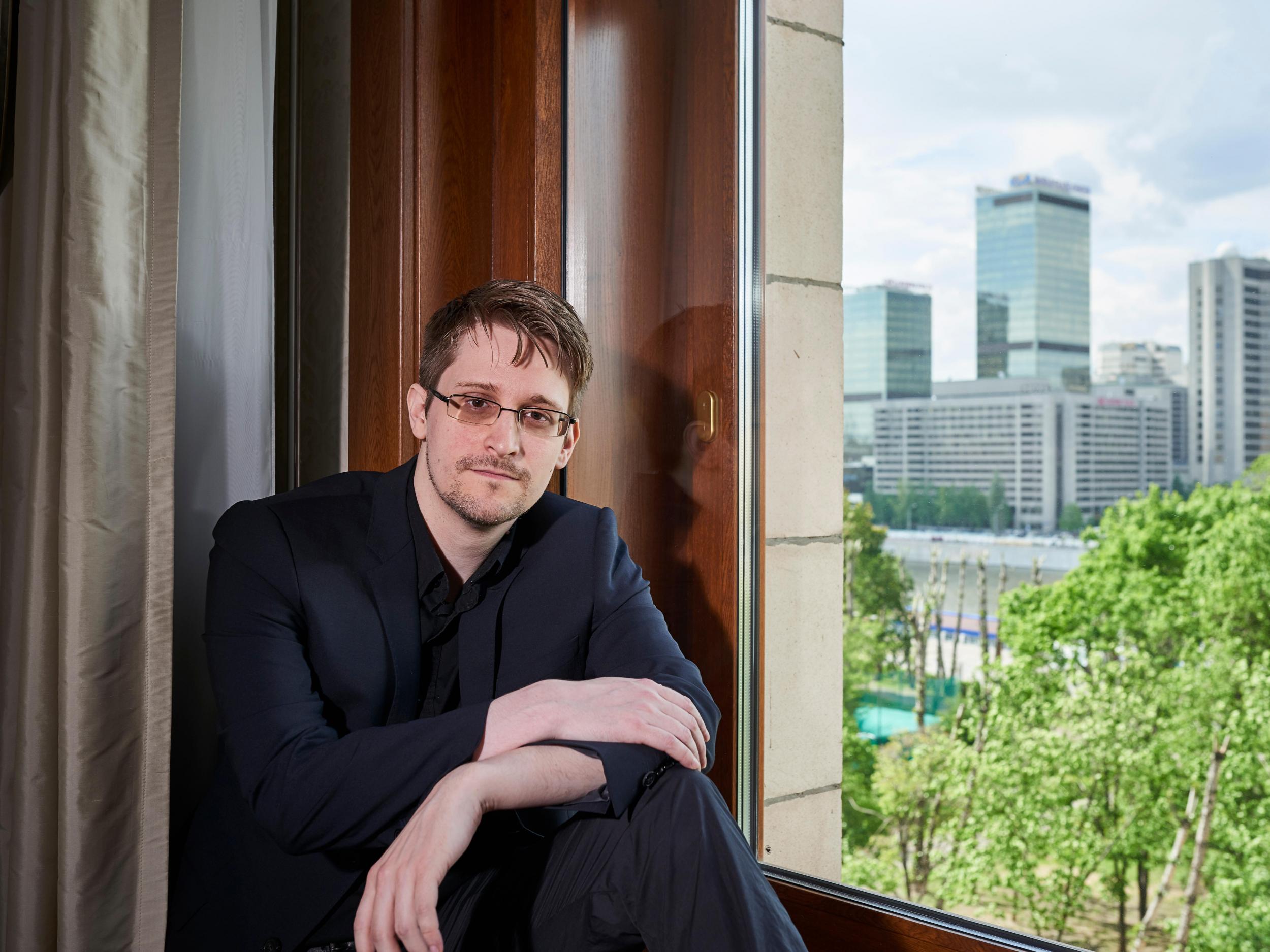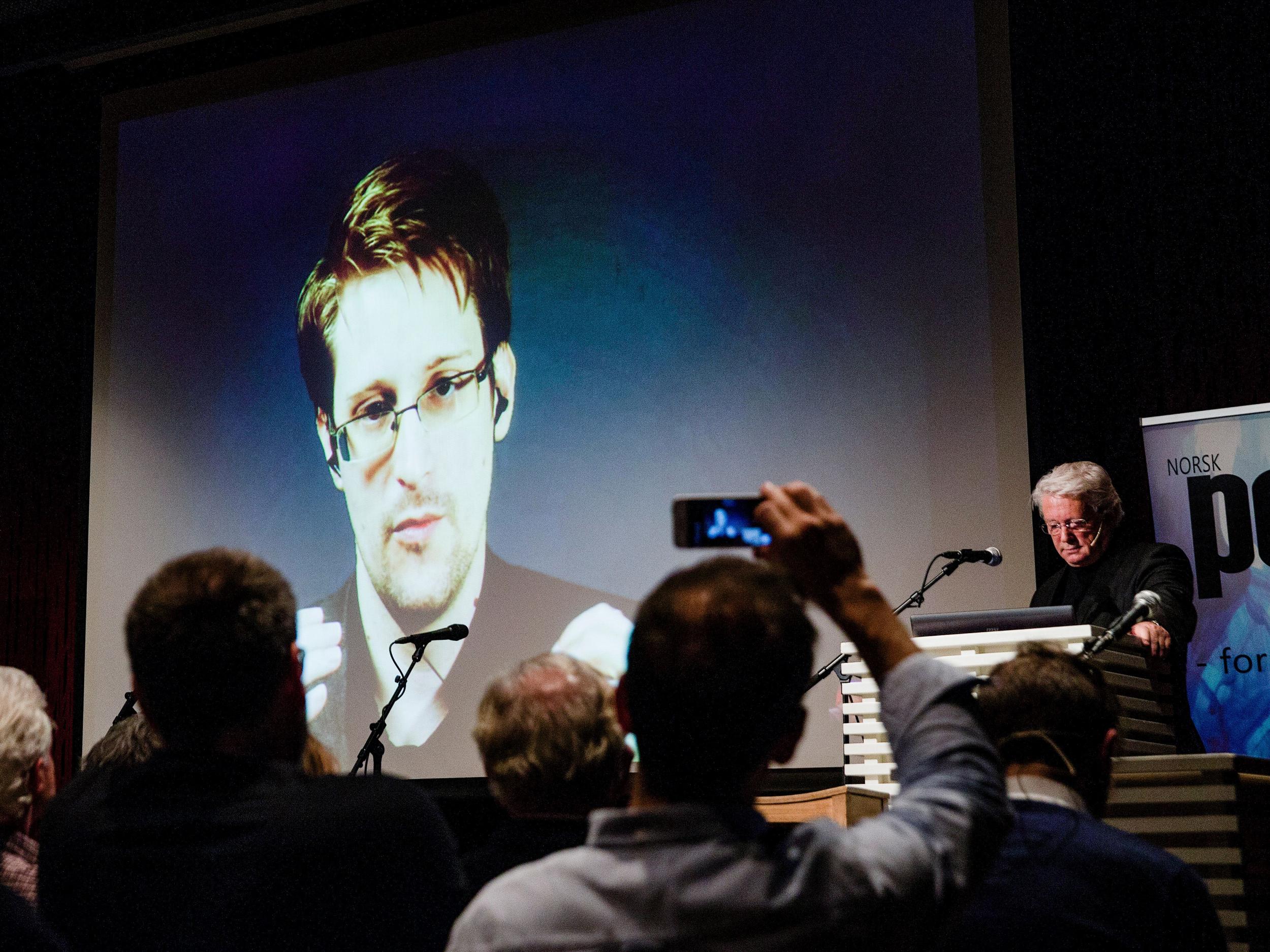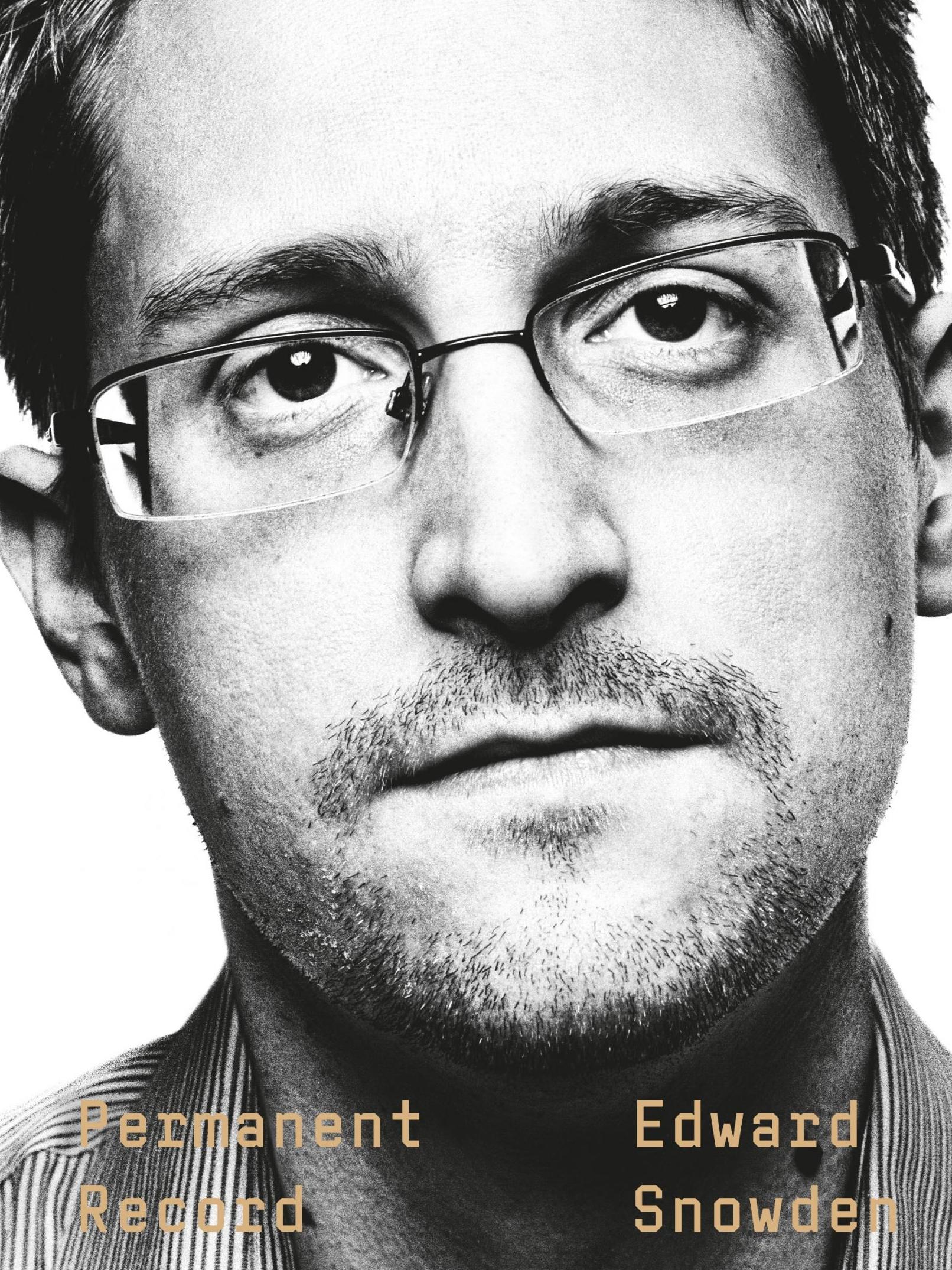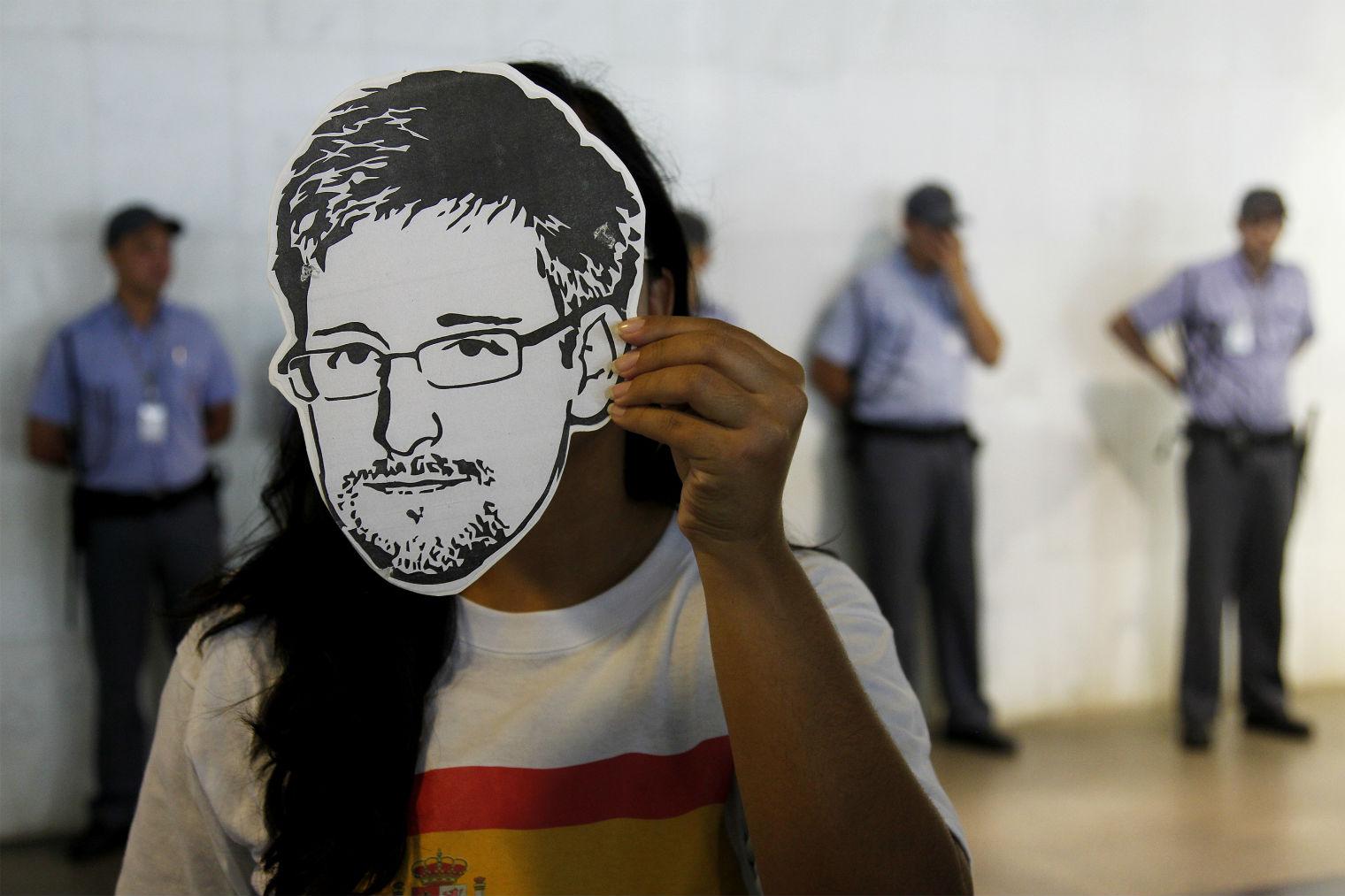Edward Snowden’s memoir: first state secrets, now personal ones
‘Permanent Record’ asks the reader what it means to have personal information stored online, readily accessible and potentially available forever, says Jennifer Szalai

Your support helps us to tell the story
From reproductive rights to climate change to Big Tech, The Independent is on the ground when the story is developing. Whether it's investigating the financials of Elon Musk's pro-Trump PAC or producing our latest documentary, 'The A Word', which shines a light on the American women fighting for reproductive rights, we know how important it is to parse out the facts from the messaging.
At such a critical moment in US history, we need reporters on the ground. Your donation allows us to keep sending journalists to speak to both sides of the story.
The Independent is trusted by Americans across the entire political spectrum. And unlike many other quality news outlets, we choose not to lock Americans out of our reporting and analysis with paywalls. We believe quality journalism should be available to everyone, paid for by those who can afford it.
Your support makes all the difference.Revealing state secrets is hard, but revealing yourself in a memoir might be harder. As Edward Snowden puts it in the preface of Permanent Record: “The decision to come forward with evidence of government wrongdoing was easier for me to make than the decision, here, to give an account of my life.”
Snowden, of course, is the former intelligence contractor who, in 2013, leaked documents about the US government’s surveillance programmes, dispelling any notions that the National Security Agency and its allies were playing a quaint game of spy vs spy, limiting their dragnet to specific persons of interest. Technological change and the calamity of 9/11 yielded new tools for mass surveillance and the incentive to use them.
Sweeping up phone records of Americans, eavesdropping on foreign leaders, harvesting data from internet activity: actor revealing these secret programmes and more, Snowden was deemed a traitor by the Obama administration, which charged him with violating the Espionage Act and revoked his passport, effectively stranding Snowden in Moscow, where he has been living ever since.
Permanent Record is a riveting account and a curious artefact. The book is unlikely to change anyone’s mind about Snowden, but when it comes to privacy and speech and the constitution, his story clarifies the stakes. For someone who worked in the intelligence community, the very idea of an autobiography feels uncomfortable. “It’s hard to have spent so much of my life trying to avoid identification,” he writes, “only to turn around completely and share ‘personal disclosures’ in a book.”
Notice the scare quotes; Snowden is instinctively careful about entering anything about himself into the permanent record of Permanent Record. The man who emerges from such “personal disclosures” seems consequently guarded and meticulous – ideal traits for a spy or a whistleblower.

Born in 1983 in North Carolina, Snowden comes from a family whose service includes the FBI (his grandfather), the Coast Guard (his father), the NSA (his mother) and the army (himself). He remembers the first thing he ever hacked was bedtime, changing all the clocks in the house, so that he could stay up later on his sixth birthday. As a teenager, Snowden learned how to hack school, examining the class syllabus to figure out how he could exploit its weaknesses; the goal was to do the least amount of work without flunking out.
School was at best a distraction, he says, and at worst “an illegitimate system” that “wouldn’t recognise any legitimate dissent”. He preferred to spend time on “something new called the internet”, a “goddamned miracle” that was still distinctly human and profoundly weird, before monetisation and surveillance set in. The internet of the 1990s was a liberating space, he says, where adopting and discarding different avatars could open up possibilities for more authentic expression and connection.
“This ability to reinvent ourselves meant that we never had to close our minds by picking sides,” he recalls, “or close ranks out of fear of doing irreparable harm to our reputations.” (In the 2014 book The Snowden Files, British journalist Luke Harding describes online posts made in the early 2000s under the handle TheTrueHOOHA – identified by Harding as Snowden – that extolled “sink-or-swim views on social security” and “the joys of gun ownership”.)

Galvanised by 9/11, Snowden eventually turned his technical know-how into a career in intelligence, obtaining a top-secret classification at age 22 and bouncing around among contractors before becoming disillusioned at some point during the Obama presidency. “I fully supported defensive and targeted surveillance,” Snowden writes, but as a young systems administrator he was learning that the government was pursuing “bulk collection” – indiscriminately vacuuming up data from Americans’ internet communications and storing it for possible later use.
Snowden says he was affronted by the rank hypocrisy of it all. Here was President Barack Obama, who had run for office as a critic of the Bush administration’s extraordinary invocations of executive power, not just continuing his predecessor’s surveillance programmes but entrenching them. Snowden’s girlfriend, Lindsay Mills, had “enthusiastically campaigned” for Obama. “Lindsay’s hope in him, as well as my own, would prove more and more misplaced,” Snowden writes.
The second half of Permanent Record reads like a literary thriller, as Snowden breaks down how he ended up in a Hong Kong hotel room in the summer of 2013, turning over a trove of classified documents to Glenn Greenwald and Ewen MacAskill of The Guardian, Barton Gellman of The Washington Post and filmmaker Laura Poitras.

Julian Assange wanted Snowden to release the information through WikiLeaks, but the site’s “total transparency”, Snowden says, wouldn’t allow for proper authentication and curation of such incendiary material. Snowden emphasises that the distinction was important to him – not that the government would see it that way. “Whereas other spies have committed espionage, sedition and treason,” he writes, “I would be aiding and abetting an act of journalism.”
Whereas other spies have committed espionage, sedition and treason, I would be aiding and abetting an act of journalism
In his acknowledgements, Snowden thanks novelist Joshua Cohen for “helping to transform my rambling reminiscences and capsule manifestoes into a book”. (As the NSA might know, I edited several articles by Cohen in a previous job.) It’s like a recursive loop of life imitating art imitating life; in Cohen’s Book of Numbers, published in 2015, a novelist named Joshua Cohen is hired to ghostwrite the autobiography of a mysterious tech billionaire – whose search-engine company happens to be sharing information with government agencies.
Permanent Record weaves together personal intel and spycraft info, much of it technologically elaborate yet clearly explained. You’ll also learn that even in our fragmented era, the tools of mass surveillance have revealed one thing that seems to connect almost everyone who’s online: porn. “This was true for virtually everyone of every gender, ethnicity, race and age,” Snowden writes, “from the meanest terrorist to the nicest senior citizen, who might be the meanest terrorist’s grandparent, or parent, or cousin.”
This is funny, but it’s ominous, too. Without belabouring his points, Snowden pushes the reader to reflect more seriously on what every American should be asking already. What does it mean to have the data of our lives collected and stored on file, ready to be accessed – not just now, by whatever administration happens to be in office at the moment, but potentially forever? Should such sensitive work be outsourced to private contractors? What entails effective “oversight” if the public is kept in the dark? When can concerns about “national security” slip into bids for unchecked power?
Snowden doesn’t reveal too much about his life in exile. He and Lindsay have since married, renting a two-bedroom apartment in Moscow, where he beams out his image through a screen-on-wheels, nicknamed the “Snowbot”, giving talks about privacy to audiences around the world. He says he takes care to avoid being recognised in public – “but nowadays everybody’s too busy staring at their phones to give me a second glance”.
© New York Times
Join our commenting forum
Join thought-provoking conversations, follow other Independent readers and see their replies
Comments